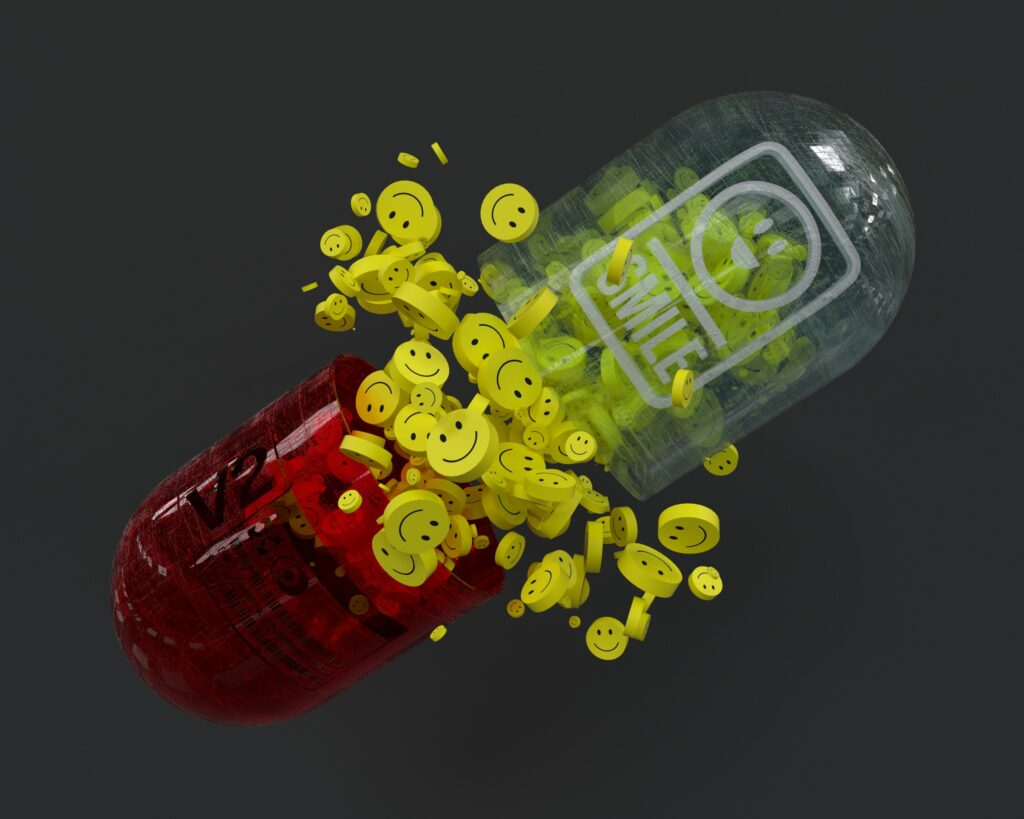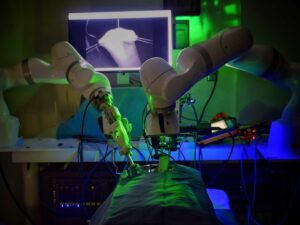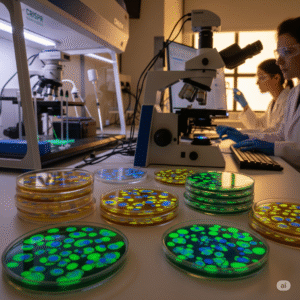Antibiotic resistance is one of the biggest public health threats of our time. According to the World Health Organization (WHO), at least 1.27 million deaths each year are directly caused by drug-resistant infections. As bacteria evolve to outsmart our most powerful antibiotics, the need for innovative solutions has never been more urgent.
Enter artificial intelligence. In early 2024, researchers from MIT and McMaster University announced a breakthrough: an AI-designed antibiotic that can kill Acinetobacter baumannii, a deadly superbug classified as a \”critical threat\” by the WHO. This isn’t just a scientific milestone — it’s a potential turning point in the global fight against antimicrobial resistance.
In this post, we’ll explore how AI-designed antibiotics work, why they’re a game-changer for medicine, and how this technology could save millions of lives in the decades to come.
Why Antibiotic Resistance Is a Growing Crisis
When antibiotics were first introduced in the 20th century, they revolutionized medicine. Infections that once killed millions became treatable. But decades of overuse — in hospitals, agriculture, and even consumer products — have led to the evolution of antibiotic-resistant bacteria, also known as “superbugs.”
The danger? These superbugs make even routine procedures — surgeries, childbirth, or cancer treatment — far riskier due to the threat of untreatable infections.
Key facts:
- Over 2.8 million drug-resistant infections occur annually in the U.S. alone (CDC).
- By 2050, antimicrobial resistance could cause more deaths than cancer if left unchecked.
- Traditional antibiotic discovery is slow, expensive, and often fails due to toxicity or inefficacy.
That’s why researchers are turning to AI — to speed up discovery, lower costs, and find molecules human scientists might overlook.
AI-Designed Antibiotics: A New Frontier in Drug Discovery
In May 2024, a team of scientists used a deep-learning algorithm to identify a new compound — named abaucin — that specifically targets A. baumannii, a bacteria responsible for many drug-resistant hospital infections.
Source: Nature – AI discovers new antibiotic against deadly superbug
Here’s how it worked:
- Researchers trained an AI model on a database of known antibiotics and their effectiveness.
- The model was tasked with scanning over 7,000 potential molecules to find promising candidates.
- Within hours, it identified a shortlist — one of which was abaucin.
- Laboratory testing confirmed abaucin’s effectiveness in killing drug-resistant bacteria without harming human cells.
Unlike traditional antibiotics, abaucin is \”narrow spectrum,\” meaning it targets specific bacteria without wiping out the body’s entire microbiome — a major benefit in preventing resistance and side effects.
How AI Improves Antibiotic Discovery
AI brings several advantages to the field of drug development, particularly when searching for novel antibiotics:
1. Speed
Traditional drug discovery takes 10–15 years. AI can screen thousands of compounds in days, identifying potential candidates for lab testing far more quickly.
2. Precision
AI models can be trained to look for very specific characteristics — such as compounds that kill A. baumannii but spare human tissue — reducing costly trial-and-error phases.
3. Innovation
Because AI can recognize complex patterns beyond human capability, it can uncover entirely new types of molecules that researchers might never consider. This opens the door to new classes of antibiotics — something the world desperately needs.
Real-World Impact: Hospitals, Pharma, and Public Health
Once fully tested and approved, AI-designed antibiotics could change how hospitals and healthcare systems treat infections.
For example:
- Hospitals: Could use rapid diagnostics and targeted antibiotics to reduce unnecessary prescriptions and stop outbreaks before they spread.
- Pharmaceutical companies: Might develop safer drugs with fewer side effects, reducing treatment costs and improving patient outcomes.
- Public health agencies: Could better respond to resistant infections in communities, using AI models to monitor mutation trends and predict outbreaks.
Even beyond antibiotics, this same technology could be used to discover antivirals, antifungals, or even cancer therapies — dramatically accelerating medical innovation across the board.
Challenges and Ethical Considerations
Despite its promise, AI drug discovery is not without concerns:
1. Data Bias
AI is only as good as the data it\’s trained on. If the training set lacks diversity — in pathogen types, demographics, or environmental factors — the AI may miss crucial patterns.
2. Regulation and Approval
New antibiotics still require rigorous clinical testing to ensure safety and efficacy. AI can speed discovery, but not the human trials needed for FDA or EMA approval.
3. Access and Equity
Will the benefits of AI-designed antibiotics reach low-income countries, where drug-resistant infections often hit hardest? Global cooperation is needed to ensure fair access.
How You Can Support the Fight Against Superbugs
While the development of AI-designed antibiotics is promising, tackling antibiotic resistance requires global participation — including individuals like you.
What You Can Do:
- Don’t misuse antibiotics: Only take them when prescribed, and always complete the full course.
- Support antibiotic stewardship programs: Many hospitals and clinics now have protocols to minimize overuse — ask your provider if they follow these practices.
- Advocate for funding: Encourage policymakers to invest in medical research and drug development.
Conclusion: AI-Designed Antibiotics Could Save Millions of Lives
The rise of antibiotic-resistant bacteria is one of the greatest medical threats of the 21st century. But thanks to breakthroughs in AI, we now have powerful tools to fight back. The discovery of AI-designed antibiotics like abaucin shows how science and technology can work together to solve humanity’s toughest problems.
While challenges remain — from regulation to equitable access — the path forward is promising. As research continues, AI may help usher in a new era of targeted, effective treatments that keep superbugs in check and save lives worldwide.




